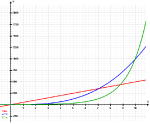Researchers find that it can – if you spend it on other people.
In the last few decades real incomes and real wealth have increased much more than people think, but people are no happier, according to research. Gregg Easterbrook wrote a book about this, The Progress Paradox: How Life Gets Better While People Feel Worse, which prompted Martin Seligman to invite him as a guest lecturer in an online course I was part of.
Elizabeth Dunn, a psychologist at the University of British Columbia, thought this might be because of the way people spend their money. “People often pour their increased wealth into pursuits that provide little in the way of lasting happiness.” They do things like buying flat screen TVs. Research has found over and over that you get a little jolt of pleasure from this, but it goes away pretty quickly. It turns out giving has more benefits. Also, just thinking about having more money makes people less likely to use it in ways that would make them happy (Vohs et al, 2006). And when a group similar to those in the third study below were asked to select the conditions in that study that would make them happier, they got it exactly backwards.
We’re actually not very good in general at predicting what will make us happy. One Harvard psychologist has devoted a lot of his research career to this. His engaging and witty best-seller is called Stumbling on Happiness, which I’ll definitely be talking about in a future post.
 Getting back to Dunn and colleagues, who published their findings in March this year in Science, their research looked at this question in different ways by doing three separate studies. They concluded that buying stuff for yourself doesn’t make you happier, but spending money on other people does.
Getting back to Dunn and colleagues, who published their findings in March this year in Science, their research looked at this question in different ways by doing three separate studies. They concluded that buying stuff for yourself doesn’t make you happier, but spending money on other people does.
They surveyed 632 Americans, gave them standardized, validated measures of general happiness, and asked questions about income, spending on (1) bills and expenses, (2) gifts for themselves, (3) gifts for others, and (4) donations to charity. Spending on the first two categories was not related to happiness; spending on the second two categories was.
Next they looked at people who received a windfall profit-sharing bonus (mostly in the $3000-$7000 range), and how they spent it. General happiness measures were taken a month before and 6-8 weeks after. They reported what percentage of their bonus they spent on 6 different categories including “buying something for someone else” and “donating to charity.” High or low income didn’t affect the happiness measure, and the amount of the bonus didn’t either. But spending in the two “pro-social” categories I just mentioned predicted higher levels of happiness. How much people got wasn’t related to their happiness two months later. Spending it on others was.
A third study was an experiment which could demonstrate causality. Participants were given either $5 or $20 to spend by 5:00 p.m. and were randomly assigned to two groups. In one group they spent the money on a bill, an expense, or a gift for themselves, and in the other group they spent the money on a gift for someone else or to make a charitable donation. Those in the latter (pro-social spending) group had increased general happiness scores.
The researchers go on to say that it might be better to focus on “intentional activities” (“practices in which people actively and effortfully choose to engage”) in finding ways to increase happiness, rather than looking at life circumstances like income, gender, and religious affiliation. They also point out that a small change in spending habits can have a significant effect. Remember that in the third study, only $5 made a difference.

References:
Elizabeth W. Dunn, Lara B. Aknin, Michael I. Norton (March 2008), “Spending Money on Others Promotes Happiness,” Science 21: Vol. 319. no. 5870, pp. 1687-1688. DOI: 10.1126/science.1150952.
Kathleen D. Vohs, Nicole L. Mead, and Miranda R. Goode (November 2006), “The Psychological Consequences of Money,” Science 314: Vol. 314. no. 5802, pp. 1154-1156. DOI: 10.1126/science.1132491.
![[Circle]](http://www.meaningandhappiness.com/pictures/GoldCircle36i.png)


